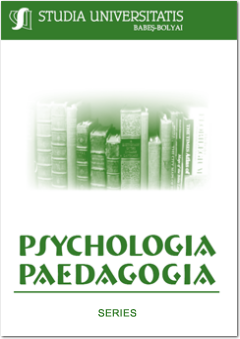CAN COMPENSATORY PROCESSING ACCOUNT FOR THE PERFORMANCE OF INDIVIDUALS WITH AUTISM SPECTRUM DISORDERS IN IMPLICIT LEARNING TASKS? A FOCUSED MINI-REVIEW
CAN COMPENSATORY PROCESSING ACCOUNT FOR THE PERFORMANCE OF INDIVIDUALS WITH AUTISM SPECTRUM DISORDERS IN IMPLICIT LEARNING TASKS? A FOCUSED MINI-REVIEW
Author(s): Andrei R. CosteaSubject(s): Social Sciences, Health and medicine and law
Published by: Studia Universitatis Babes-Bolyai
Keywords: autism spectrum disorders; implicit learning; compensation;
Summary/Abstract: The research literature provides numerous hypotheses aiming to isolate the cognitive mechanisms thought to underlie the social impairments of individuals with autism spectrum disorder (ASD). To this end, the hypothesis of an implicit learning (IL) deficit in ASD, posits that individuals with ASD encounter social difficulties because, contrary to individuals with typical development (TD), they are unable to implicitly, or unconsciously, learn social grammars (i.e., social regularities). However, the majority of the available research indicates a general lack of empirical support for this hypothesis. Our chief objective is to inform future research by reviewing some of the most salient findings from the IL deficit in ASD literature from a compensatory processing framework. In order to achieve our goal, we initially detail the rationale behind the IL deficit in ASD hypothesis. Then we summarise several research findings which either confirm or fail to confirm this hypothesis. Subsequently, we introduce the concept of compensatory processing. Afterwards, we review a series of evidence indicating that individuals with ASD might compensate in some IL tasks. Here we suggest that even though their behavioural performance seems intact, the functioning of IL in ASD is likely to be atypical. Finally, on the basis of the literature review, we suggest potential directions for future research into this hypothesis.
Journal: Studia Universitatis Babes-Bolyai - Psychologia-Paedagogia
- Issue Year: 63/2018
- Issue No: 2
- Page Range: 5-25
- Page Count: 21
- Language: English

